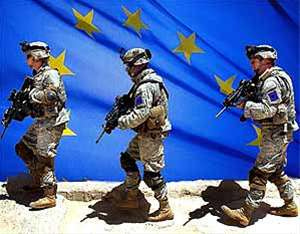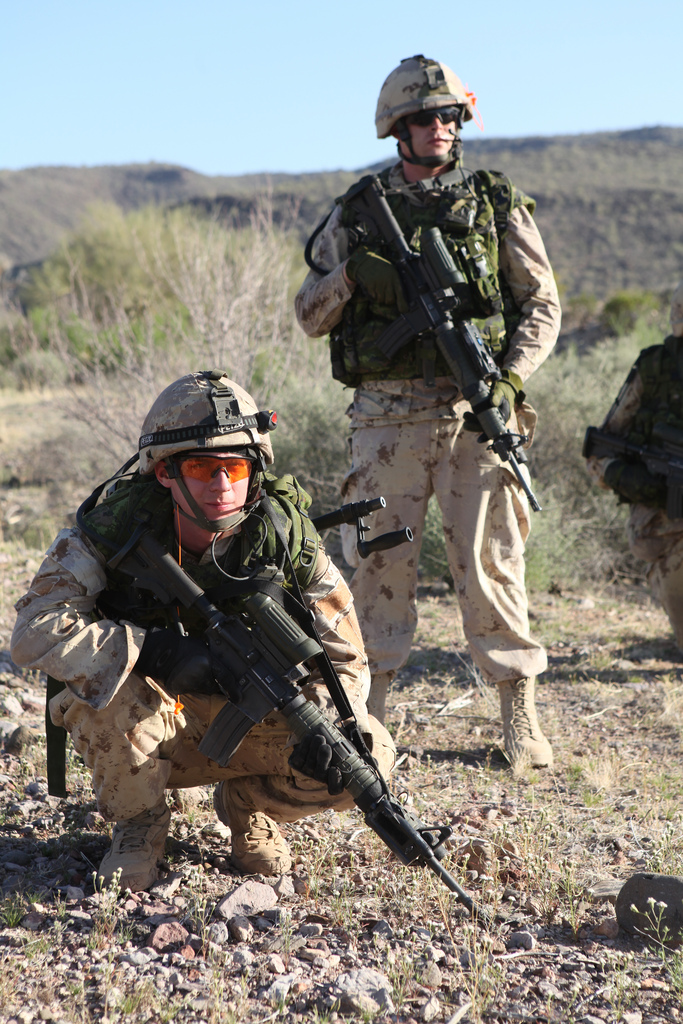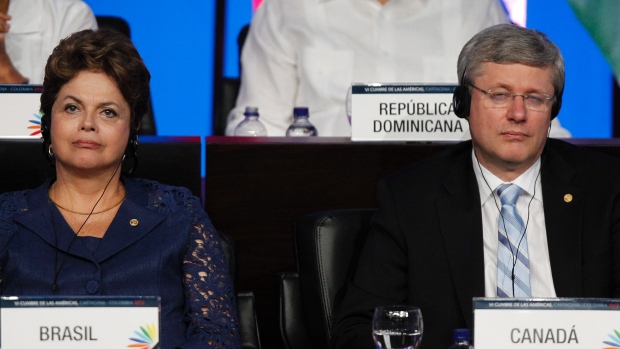In a speech earlier this year, US Defence Secretary Chuck Hagel repeated the USA’s complaint about its NATO partners,“Since the end of the Cold War, America’s military spending has become increasingly disproportionate within the alliance.” This complaint is not new, of course. Nevertheless, the budgetary pressures facing many EU states as well as the US, along with the resurgence of security concerns on the European continent in the form of Russian irredentism, have thrown the disparity into sharp focus.
According to Hagel, the US defence budget is three times larger than the rest of NATO’s combined spending. Of the twenty-eight member states, only the US, UK, Estonia, and Greece meet the NATO target of spending 2% of their GDP on defence (France and Turkey fall just short). As the US pivots to Asia in the face of China’s increasingly assertive foreign policy, and President Putin continues to throw Russia’s weight around in Eastern Europe, this weakness may be cause for concern.
If European states aren’t investing enough to provide for their own defence, will they always be able to count on Uncle Sam being there to pick up the considerable slack? It is this fear that may have contributed to EU efforts to bolster the historically stagnant process of European defence integration in the 1990s. Though budgetary austerity has presented a significant setback to hopes for a more independent military capability, this article will argue that not only have the EU’s military efforts been under-rated, but that they should be given higher priority in future, though they will continue to face constraints.
The successive treaties of the EU, from Maastricht through to Lisbon, have each mandated a firmer and more ambitious role for the EU to play in formulating a common defence policy. What was a tentative suggestion, in 1992’s Treaty of Maastricht, “The common foreign and security policy shall include all questions related to the security of the Union, including the eventual framing of a common defence policy, which might in time lead to a common defence” (Article J.4), became the definitive statement: “The common security and defence policy shall be an integral part of the common foreign and security policy” (42.1) in 2007’s Treaty of Lisbon. The historical reluctance to develop European defence capabilities into something more has given way to several initiatives. The most ambitious of these are the EU Battlegroups.
The EU Battlegroups, first proposed in 1999 and made a reality in 2004, are 1,500-strong contingents of troops, under the control of the Council of the European Union, available for rapid deployment for humanitarian and peacekeeping operations, especially at the request of the UN. They have been designed to complement NATO’s Response Force, instead of duplicating it, helping smaller nations develop rapid-response capbilities for use in multinational operations. Larger EU nations are expected to provide a full battlegroup, while smaller nations will generally work together – noteworthy formations include the Weimar Battle Group (Poland, France and Germany) and the Nordic Battle Group (Sweden, Finland, Estonia , Latvia, Lithuania, Ireland, and non-EU member Norway). In 2007, the EU achieved its goal of being able to call upon two Battle Groups at a time, with countries participating in a six-month high readiness rotation. However, they have not yet been deployed.
Nevertheless, the EU has conducted a number of military operations, independently and in partnership with other supranational bodies. These include anti-piracy operations off the coast of Somalia, peacekeeping missions in Bosnia-Herzegovina and the Central African Republic, and training allied militaries in Mali, Somalia and the Democratic Republic of Congo. Though these operations have involved little combat, they have served to build familiarity and experience of joint operations, as well as promoting the interests of the European Union in the world.
In a 2006 article, Barry Posen anticipated a growing independent military capacity for the EU, as European nations realised that the US and NATO would not necessarily be interested in getting involved in interventions that were mostly in the interests of Europe. He pointed to the afore-mentioned developments in the EU treaties of the 1990s, arguing that even if NATO were to remain the pre-eminent military actor in Europe, the existence of an alternative would act as an incentive for the US to remain committed to the defence of Europe so as to not encourage the emergence of a military actor it has less influence over. Posen further argued that the leading nations in the EU were committed to the European Security and Defence Policy for different reasons. Chief among them is reducing dependence on the US and giving the EU the military basis to form a credible independent foreign policy. At the time, he predicted that the EU could become a viable independent military actor within a decade.
Posen’s predictions ultimately went unrealized. The financial crisis of 2008 and the devastation it unleashed on the Eurozone seem to have thrown the brakes on the project, with many European nations struggling to maintain even their existing levels of military expenditure, let alone take on greater responsibilities. Furthermore, the EU’s present unpopularity, manifested in the strong showing for populist Eurosceptic parties in this year’s European elections make it hard to conceive of a real commitment to this form of sovereignty-sharing. What was set to be the first mission for an EU Battle Group, a peacekeeping operation in the Central African Republic, collapsed due to British and German reluctance, leaving France to deploy alone, with limited support from its allies.
Nevertheless, the unrest in Ukraine demonstrates that Europe doesn’t have the luxury of abandoning its own defence. Defence Secretary Hagel’s criticism is reflective of a long-standing US impatience at being asked to shoulder the largest part of the burden of defending Europe. Furthermore, there is no guarantee that the security umbrella will be there forever as rising US interest in Asia and constraints on US defence budgets may one day limit Washington’s ability to act. Not only could ESDP ensure Europe is able to cater to its own security needs in the future, it could actually permit savings, through pooling administrative costs, as well as expenditures on research and development and procurement.
The European Security and Defence Policy may not get a lot of attention, but in an uncertain world, it’s good to know it’s there




